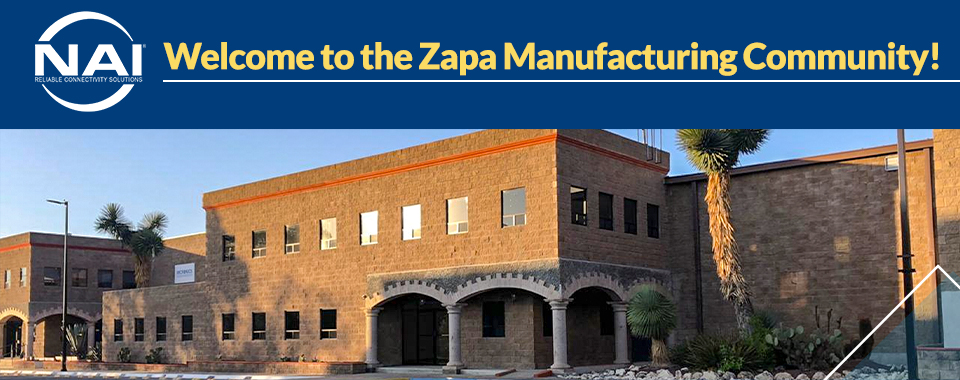Amidst the escalating tariffs and trade tensions between the US and China, global manufacturing shifts are rapidly reshaping supply chain dynamics. Companies across various industries are increasingly looking towards Mexico as a strategic alternative to China for their manufacturing needs.
This shift is driven not only by tariff mitigation strategies but also by Mexico's proximity to the US market, cost-effective logistics, and advanced manufacturing capabilities. As Southeast Asia remains a contender, Mexico stands out with its robust industrial infrastructure and extensive network of free trade agreements, offering a stable and supportive environment for international businesses navigating uncertain global trade landscapes.
This trend underscores Mexico's growing significance in global manufacturing strategies, positioning it as a resilient and strategic partner amidst evolving geopolitical dynamics.
Mexico Is in Demand
Camera manufacturer GoPro Inc. was one of the leaders of this movement when in late 2018 it announced plans to move production of its U.S.-bound cameras from China to Mexico in order to avoid any potential tariffs. While the company continues to produce non-U.S. bound cameras in China, the diversification helps to insulate it against the increasing prices of shipping product from China to the United States. In June 2019, the company began production in Guadalajara.
"We expect most of our U.S. bound cameras will be in production in Mexico in the second half of 2019," commented Brian McGee, GoPro executive vice president and CFO in a statement. “As stated previously, our decision to move most of our U.S. bound production to Mexico supports our goal to insulate us against possible tariffs as well as recognize some cost savings and efficiencies."
GoPro is hardly alone. Sensor and remote-control producer Universal Electronics, toy maker Hasbro and paper product manufacturer Fuling Global Inc. have also reduced their dependence on China by shifting some of the work to Mexico.
Others are following suit. A May 2019 survey from the American Chamber of Commerce in China of member companies found approximately 39.7% of survey respondents were considering or had already relocated manufacturing facilities outside China. Those companies moving manufacturing saw Southeast Asia (24.7%) and Mexico (10.5%) as their top destinations. Fewer than 6% of members said they had or were considering relocating their manufacturing to the U.S.
Benefits to Mexico over alternative manufacturing bases
While Southeast Asia does provide low-cost labor, sourcing products from Mexico instead of Asia offers U.S. companies a number of benefits. In addition to relief from tariffs, Mexico’s location helps significantly reduce costs. It costs $1,800 and takes one week to ship a 40-foot container to the U.S. from Mexico, compared to costs of $4,300 and a 5-week timeline to ship from China.
In some cases, those costs can drop even further for manufacturers who are able to take advantage of de minimis shipments under Section 321 of the U.S. Code of Federal Regulations. Section 321 sets an $800 minimum value on shipments allowed into the United States duty-free. With carefully planned logistics, some companies shipping from Mexico can reap substantial savings on duties.
In addition, compared to many Southeast Asia countries, Mexico has a significantly more advanced manufacturing supply chain supporting a number of sophisticated industries—automotive and electronics manufacturing chief among them. As a leading location for manufacturers, it has long attracted component suppliers to its various regional manufacturing hubs.
Finally, Mexico doesn’t offer advantages to U.S.-based companies alone. Mexico has more free trade agreements than any other country in the world. It’s a stronger partner to more than 50 countries, with agreements reaching into Europe, South America and Africa.
Find new stability with manufacturing in Mexico
There is, of course, another factor in Mexico’s favor. Recent reports indicate that the U.S. Congress is now on the verge of passing the NAFTA update known as the United States-Canada-Mexico Agreement. The agreement will add to the stability of U.S.-Mexico relations and better protect the rights of each. For example, among many other changes, the agreement guarantees protection of a manufacturer’s Intellectual Property, a frequent point of contention between the US and China.
While the USMCA impact won’t be certain until the document is passed by Congress, it’s already clear that diversification beyond Chinese manufacturing will remain a more reliably cost-effective way to get good to the U.S. market.
Companies ready to broaden their footprint and learn more about the advantages that Mexico has to offer should contact Tetakawi today.
Subscribe
Sign up and stay informed with tips, updates, and best practices for manufacturing in Mexico.





